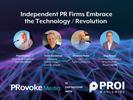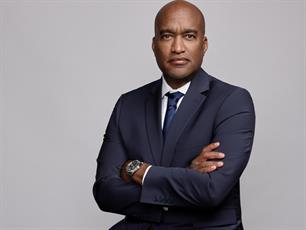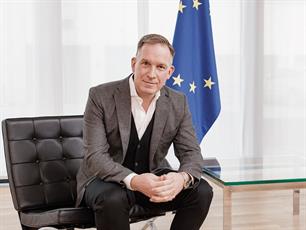Holmes Report 08 Jul 2013 // 10:11AM GMT
Whatever field you’re in, from medicine to marketing, people want to do meaningful work. At the recent Cannes Festival of Creativity, winners of Lions were rewarded not just for creativity but for winning hearts and minds around the world by creating work that matters. So how do you do this kind of work? If the goal is true engagement, then perhaps you need to pick a fight and be clear about why.
In the #WorkThatMatters presentation from Coke – the Cannes Lions 2013 Marketer of the Year - we learned of the company’s continuing mission to make their brand matter culturally. Their formula starts with clear understanding of the fundamentals: What does our brand believe, what is its purpose and what is the cultural tension that the brand will oppose and overcome? These questions are central to who we are as people but apply equally to brands. By being clear about these aspects of identity, the brief for the campaign work is clear and singular while allowing for multiple expressions of a core idea, thus reinforcing the brand’s purpose and creating a virtuous circle.
Where brands are truly winning is with work that has a clear point of view and is unafraid to pick a fight with something they oppose, putting people first and then layering product. Creating campaigns that speak to our hearts and then to our heads. For sure it takes courage and not a little conviction but the rewards are there for those brands willing to be brave.
Big brand marketers like P&G (client), Coke and Unilever intuitively understand that building campaigns that champion people results in award-winning work that simply works. These campaigns are powerful and singular and engage people as people in rallying against a common foe. By picking on a cultural tension in our common experience and championing a solution, brands are able to truly engage consumers in a shared goal. By isolating an issue, the brands are able to define better themselves as a force for good and build emotional connection that transcends mere function. In turn consumers are better able to identify and relate to the brand as it champions a shared issue and thus they begin to adopt the message and share, thus conferring credibility and powerful word of mouth.
For P&G, the Secret brand’s award-winning work around teenage cyber bullying - Mean Stinks - is a perfect example where clear purpose and picking a fight resulted in a “movement” that drove millions of girls to rethink their ugly behaviors and recognize that nice can be cool. It’s an evergreen issue that the brand can claim a stake in, and one that has helped to differentiate the brand among its competitive set in a way that goes far beyond mere functional benefit.
In the same way, Unilever has laid siege to the issue of women's insecurity, becoming a committed and long term champion of female self-esteem. It's an ongoing narrative which consistently delivers fresh, award winning work, the most recent being the sketch artist work that we saw again in Cannes and which was rewarded with a Gold Lion. In the case of Coke's ongoing platform of Happiness, the most recent work focussed on taking on despair, with its most recent work to connect the bitterly divided peoples within the disputed Kashmir Valley with an innovative vending machine designed to remind them that there is more that unites as human beings than divides us. By championing the idea of optimism in the face of despair, the brand transcends mere product to engage us in a richer conversation that speaks to the heart.
The positive way in which these campaigns are received proves once again that brands can choose to put people first and engage them if they are willing to be clear and stand up for something that they can believe in. By openly addressing social tensions, these brands and others are standing up to be counted as cultural commentators, shaping conversation as opposed to merely reacting to it and expressing clear beliefs for consumers to understand. From this courage and conviction comes work that matters. This work stands out not just at Cannes but all around the world, on the Web and in the minds of billions. It’s the work that we all come to see, and that we wish we had done ourselves.
So as we start the thinking and planning to engage our audiences in the months to come, ask yourself will you fight to do work that matters? Do you know what your purpose is and are you ready to pick a fight to build a better connection with the people whose hearts and minds you wish to engage?
If the answer is yes, we’ll probably be admiring your work in Cannes next year.
James Kelly is EVP and global director of strategic and creative planning at Ketchum.


































.jpg)





.tmb-135x100.jpg)











